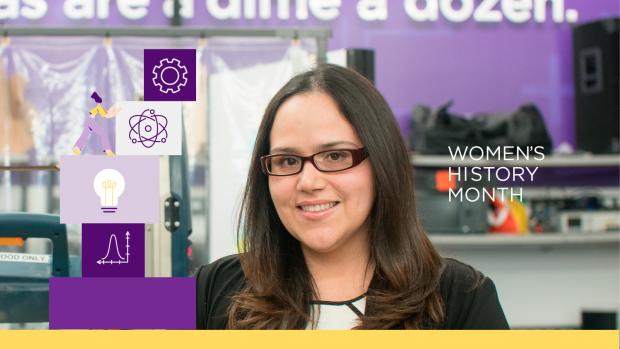Spotlight on Dr. Sheila Borges Rajguru
Assistant Director of the NYU Tandon Center for K12 STEM Education

Sheila Borges Rajguru studied biology and Italian at Rutgers before embarking on a career in industry. Later, she earned a master’s degree in microbiology and immunology from NYU, also serving as a research microbiologist there and as an instructor — teaching courses and collaborating with colleagues to develop innovative STEM teaching methodologies. She next worked at the Mount Sinai School of Medicine conducting research in virology and immunology.
Borges Rajguru enjoyed science research and teaching but noted that most students in the STEM research world did not look like her. Wanting to inform educational policy, she earned a doctorate in science education with a focus on diversity and equity from Columbia University and since then has been informing the field through her research efforts.
A current co-chair and treasurer of the Association for Science Teacher Education (NE-ASTE) and STEM, Diversity and Equity scholar at Columbia University, Borges Rajguru joined the staff at Tandon’s Center for K12 STEM Education in early 2018 and has been instrumental in furthering its mission to engage the city’s K-12 students and teachers in science, technology, engineering, and math subjects through a wide variety of hands-on, innovative programs. Her focus at the Center is to lead STEM K-12 programs, team with NYU Tandon faculty in conducting and developing NSF-funded grants, mentor NYU students, and present STEM education research work internationally. Her research interests include: K-16+ STEM education; issues of culture, race, gender and equity; and best teaching and learning practices in engineering education.
Currently, she is co-PI of various NSF-funded robotics and mechatronics teacher programs with Professor of Mechanical and Aerospace Engineering Vikram Kapila. “Working with Kapila has been a remarkable experience because he is an innovator who has been informing the field of engineering education for decades,” she says. “I enjoy collaborating with him and his team and am looking forward to expanding the Center in new and innovative ways by continuing to make partnerships with other faculty and institutions.”
Among the recent projects on which Borges Rajguru has worked is a “toolkit” that allows teachers to perform dozens of experiments using COSMOS, a wireless testbed covering one square mile in West Harlem that was funded last year by the National Science Foundation’s (NSF) Platforms for Advanced Wireless Research (PAWR) program. COSMOS is led by researchers at Rutgers, Columbia and NYU – each, coincidentally, one of Borges Rajguru’s alma maters – and last summer, with her help, the COSMOS team held an intensive six-week program for local math and science teachers to explore the possibilities of the testbed. They recently won a $100,000 prize in the Verizon 5G EdTech Challenge — a competition aimed at finding ways to use wireless technology to transform middle school education, particularly in underserved areas. They will be using it to expand their existing toolkit to include an immersive virtual-reality experience modeled on the concept of the well-known escape room games, which call upon players to work together to discover clues, solve a series of puzzles, and accomplish tasks.
Borges Rajguru is much in demand as a speaker and conference presenter, and her work is beginning to have wider impact, as select schools move away from the old science standards to Next Generation Science Standards (NGSS). “We know that in order to better teach students, STEM subjects like physics, life sciences, chemistry, and math should not be taught in silos,” she explains. “The NGSS incorporates three-dimensional learning in which K-12 students can understand the work that scientists and engineers actually do. This is important because schools in higher education will be seeing a shift in their new incoming classes, and they must be prepared to address those changes.”
We’re developing transformative, culturally relevant programming and influencing public policy. No one here is interested in simply talking the talk; we walk the walk.” — Sheila Borges Rajguru
In her personal life, Borges Rajguru enjoys hiking and finding ways to protect the environment from unnecessary waste. In addition, she mentors students from marginalized areas. She states, “As a first-generation student myself, I connect deeply with those who are trying to find their way and I am proud to be a mentor to all youth so that they can navigate uncharted spaces especially when their cultural capital is not valued. I would like students to fall in love with science and engineering and continue on in STEM careers. I fell in love with STEM on my grandfather’s farm in Puerto Rico. He taught me that science is all around us and that scientists can come from anywhere.”
Listen to Sheila Borges Rajguru talk about the COSMOS education toolkit:




